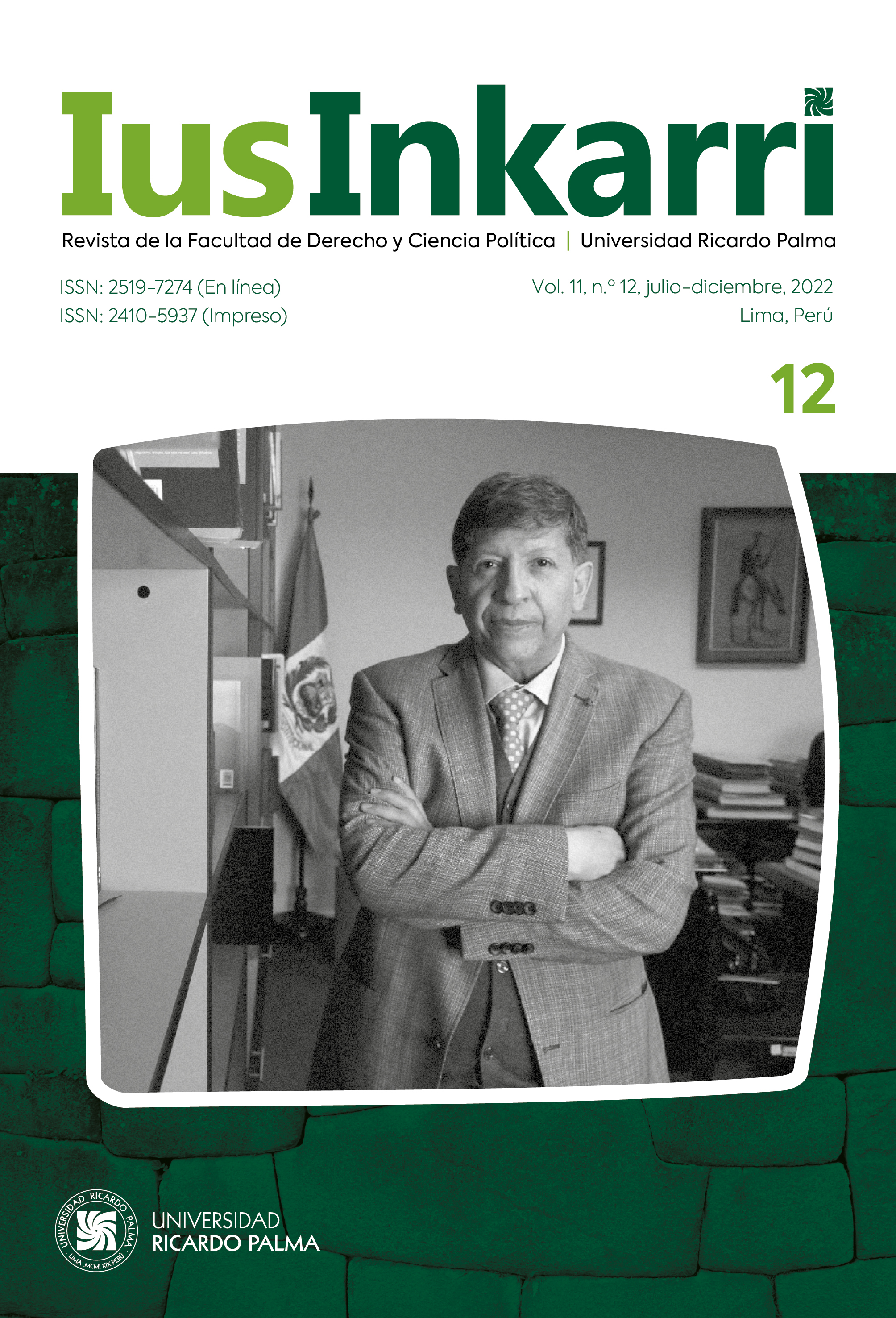The binding nature of the constitution in Peruvian constitutional history: From the TGC to the TC
DOI:
https://doi.org/10.59885/iusinkarri.2022.v11n12.06Keywords:
constitutional justice, Court of Constitutional Guarantees, politics, Constitutional CourtAbstract
The objective of this research is to determine since when and to what extent the concentrated control of the Constitution by means of a centralized organism achieved the binding interpretative character of the Constitution and in what terms it sustains it over the other organisms of the State and individuals. For this purpose, in the first section, I make use of the history of law to achieve this objective, here I determine the background of such concentrated control, which relapsed on the implementation of the Court of Constitutional Guarantees, with its limitations. Next, I inquire about the constitutional interpretation of the binding nature and analyze the institute of the binding constitutional precedent, explaining the dissociation, and false similarity, between the historical origin of the common law precedent concerning the Peruvian experience. Then, I analyze the relevance that the constitutional judiciary currently has under other interpretations that have the same result of constitutional primacy. Finally, I conclude that the binding nature of the Constitution that falls on the Constitutional Court comes from a historical-constitutional experience of appropriation of the term precedent developed in recent years, and through this, the result of linkage to the interpretation of constitutional judges is achieved. The approach of the present work is qualitative, from a documentary and legal historical analysis.
Downloads
References
Castillo, L., Sáenz, L., Abanto, C., Gutiérrez, R., Sosa, M., Marchan, S., Cassasa, S., Ravello, G., López, B., Seminario, N., Bolaños, R. y Reyes, C. (2022). Las interpretaciones vinculantes y concretadoras de la Constitución como normas constitucionales. En A. Crispín (coord.), Precedentes y doctrina jurisprudencial vinculante del Tribunal Constitucional (pp. 9-27). Gaceta Jurídica.
Correo (1982, 9 de noviembre). Instalan Tribunal de Garantías, 13.
Diario Oficial El Peruano (1994, 28 de enero). Separata adicional, 8.
El Comercio (1982, 9 de noviembre). Editorial. A-2.
Ramos, C. y Tornero, Y. (2018). Orígenes de la jurisdicción constitucional en el Perú: entre política y justicia. En M. Alcántara, M. García y F. Sánchez (coords.), Estudios políticos. Memoria del 56.o Congreso Internacional de Americanistas (pp. 340-350). Ediciones Universidad de Salamanca.
Tribunal Constitucional (2004). Expediente n.o 3771-2004-HC/TC Piura. Lima: 29 de diciembre de 2004.
Tribunal Constitucional (2018a). Jurisprudencia relevante del Tribunal de Garantías Constitucionales. Procesos de inconstitucionalidad. Centro de Estudios Constitucionales. https://www.tc.gob.pe/wp-content/uploads/2018/10/Jurisprudencia-relevante_2018.pdf
Tribunal Constitucional (2018b). Expediente n.o 02677-2016-PA/TC. Lima: 5 de diciembre de 2018.
Tornero, Y. (2021). El legado de los inicios de la judicatura constitucional concentrada peruana en el marco del Bicentenario de la República. En E. Blume (coord.), Reflexiones constitucionales sobre el bicentenario. Significado, importancia y retos en la forja del Estado Constitucional peruano (pp. 667-674). Centro de Estudios Constitucionales. https://www.tc.gob.pe/wp-content/uploads/2021/08/Reflexiones-Constitucionales-sobre-el-Bicentenario.pdf
Published
How to Cite
Issue
Section
License
Copyright (c) 2022 Yuri Tornero Cruzatt

This work is licensed under a Creative Commons Attribution 4.0 International License.













